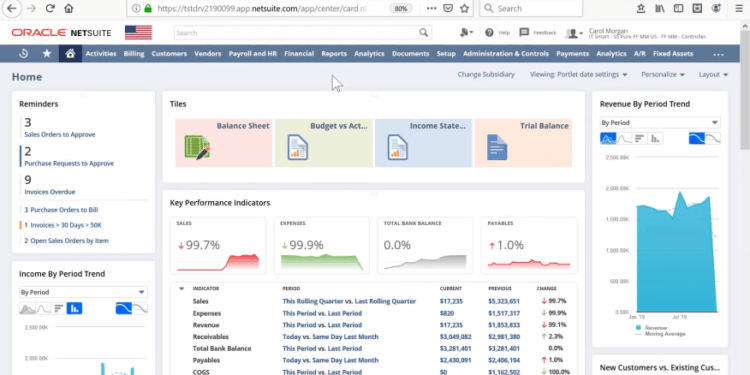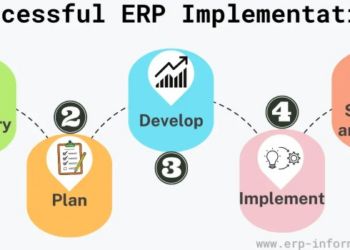With NetSuite revolutionizing business operations, this guide delves into its features and benefits, shedding light on how it can transform your organization. From its inception to its seamless integration, discover the world of NetSuite in this engaging narrative.
NetSuite, a cloud-based software suite, offers a wide array of functionalities designed to streamline business processes and drive growth. Let's explore the intricacies of this powerful tool together.
Introduction to NetSuite
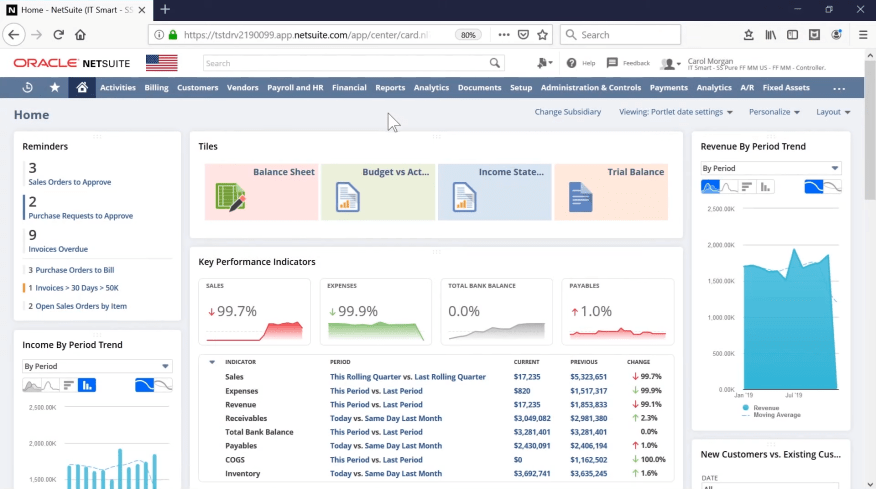
NetSuite is a cloud-based business management software that offers a comprehensive suite of applications for finance, accounting, inventory management, e-commerce, and customer relationship management (CRM). It provides a centralized platform for businesses to streamline their operations, improve efficiency, and make data-driven decisions.
History and Development of NetSuite
Founded in 1998 by Evan Goldberg, NetSuite was one of the first companies to deliver business applications over the internet. It quickly gained popularity for its innovative approach to cloud computing and ERP solutions. In 2016, NetSuite was acquired by Oracle Corporation, further solidifying its position as a leading cloud-based software provider.
Key Features and Benefits of NetSuite
- Integrated Business Management: NetSuite offers a unified platform for managing various aspects of a business, including financials, CRM, e-commerce, and more.
- Scalability: NetSuite can scale with your business as it grows, providing flexibility and customization options to meet changing needs.
- Real-time Insights: With built-in analytics and reporting tools, NetSuite enables users to access real-time data and make informed decisions.
- Improved Efficiency: By automating repetitive tasks and workflows, NetSuite helps businesses streamline operations and increase productivity.
- Cloud-Based Accessibility: Being cloud-based, NetSuite allows users to access their data and applications from anywhere, at any time, with an internet connection.
NetSuite Modules
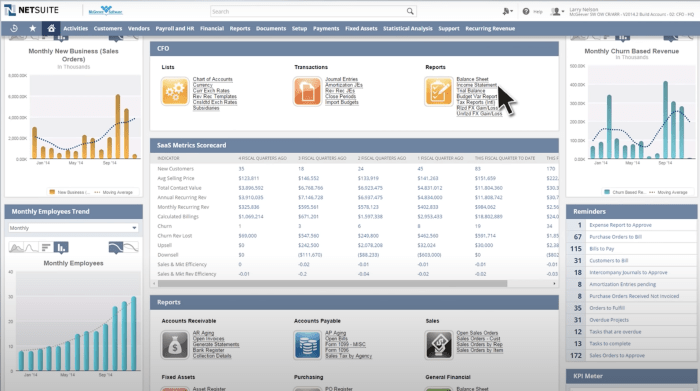
NetSuite offers a variety of modules that cater to different aspects of business operations, including CRM, ERP, and e-commerce. Each module serves a specific function to help streamline processes and improve overall efficiency.
Customer Relationship Management (CRM)
CRM module in NetSuite allows businesses to manage customer interactions, track leads, and automate sales processes. By centralizing customer data, businesses can provide personalized service, track customer communications, and improve customer retention rates.
Enterprise Resource Planning (ERP)
The ERP module in NetSuite integrates various business functions like finance, inventory management, and order processing into a single system. This streamlines operations by providing real-time visibility into key metrics, automating workflows, and improving decision-making processes.
E-commerce
The e-commerce module enables businesses to create and manage online stores, streamline order processing, and provide a seamless shopping experience for customers. Integration with other modules like CRM and ERP ensures a cohesive approach to managing online sales channels.Overall, each module in NetSuite plays a vital role in enhancing business operations by improving efficiency, increasing productivity, and enabling better decision-making.
Businesses can customize their NetSuite implementation by choosing the modules that best fit their specific needs and requirements.
Implementation of NetSuite
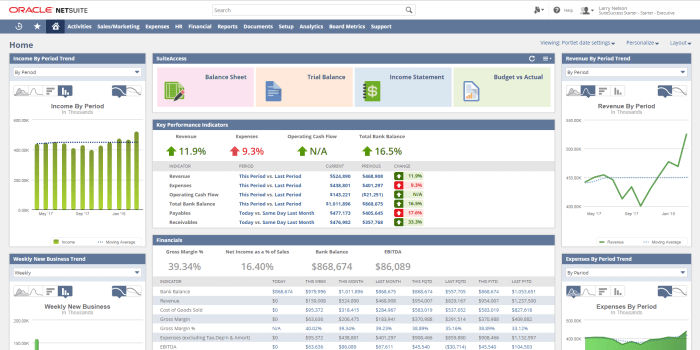
Implementing NetSuite in a business setting involves a series of steps to ensure a successful transition to the new system. Organizations may face challenges during the implementation process, but following best practices can help mitigate these issues.
Process of Implementing NetSuite
- Assessment and Planning: Evaluate existing processes and systems to determine the scope of implementation.
- Configuration: Customize NetSuite to align with the organization's specific needs and requirements.
- Data Migration: Transfer data from legacy systems to NetSuite while ensuring accuracy and integrity.
- Training: Provide comprehensive training to employees to ensure they are proficient in using the new system.
- Testing: Conduct thorough testing to identify and resolve any issues before full deployment.
- Go-Live: Roll out NetSuite across the organization, monitoring performance and addressing any post-implementation issues.
Challenges Organizations May Face
- Resistance to Change: Employees may be reluctant to adopt new processes and technologies.
- Data Quality Issues: Ensuring data accuracy and consistency during the migration process can be challenging.
- Integration Complexity: Integrating NetSuite with existing systems and applications can be complex and time-consuming.
- Resource Constraints: Limited resources, such as time and budget, can impact the implementation process.
Best Practices for Successful NetSuite Implementation
- Executive Sponsorship: Secure support from senior leadership to drive the implementation process.
- Clear Communication: Ensure transparent communication with all stakeholders throughout the implementation.
- Change Management: Implement change management strategies to address resistance and facilitate a smooth transition.
- Engage End Users: Involve end users in the implementation process to gather feedback and ensure user adoption.
- Continuous Improvement: Regularly evaluate and refine processes to optimize the use of NetSuite and maximize ROI.
Customization and Integration
Customizing NetSuite to meet specific business needs is essential for maximizing the platform's potential. There are several options available for customization, including creating custom fields, forms, and workflows tailored to the unique requirements of a business. Additionally, NetSuite SuiteBuilder allows users to customize the system without the need for coding knowledge, making it accessible to a wider range of users.
Third-party Integrations
Third-party integrations play a crucial role in enhancing NetSuite functionality by providing additional features and capabilities that may not be available within the platform itself. Some examples of third-party integrations that can be integrated with NetSuite include Salesforce for CRM, Shopify for e-commerce, and Concur for expenses management.
These integrations help businesses streamline their operations, improve efficiency, and gain a competitive edge in the market.
Seamless Integration with Other Systems
Seamless integration with other systems is vital for ensuring data consistency and accuracy across the organization. By integrating NetSuite with other systems such as ERP, CRM, and e-commerce platforms, businesses can eliminate manual data entry, reduce errors, and improve overall productivity.
This integration allows different departments to work cohesively and access real-time information, leading to better decision-making and increased efficiency.
NetSuite Reporting and Analytics
NetSuite offers robust reporting and analytics capabilities that allow businesses to gain valuable insights from their data. By leveraging these tools, organizations can make informed, data-driven decisions to drive growth and improve efficiency.
Reporting Capabilities in NetSuite
NetSuite provides a wide range of pre-built reports and customizable dashboards to help users visualize and analyze their data effectively. Users can create financial reports, sales reports, inventory reports, and more to track key performance indicators and monitor business performance.
- Financial Reports: NetSuite offers various financial reports such as income statements, balance sheets, cash flow statements, and more to provide a comprehensive view of the company's financial health.
- Sales Reports: Users can generate sales reports to track sales performance, analyze trends, and identify opportunities for growth.
- Inventory Reports: NetSuite allows businesses to monitor inventory levels, track stock movements, and optimize inventory management processes.
Analytics for Data-Driven Decision-Making
By utilizing NetSuite's analytics capabilities, businesses can delve deeper into their data to uncover patterns, trends, and insights that can drive strategic decision-making. With advanced analytics tools, organizations can forecast sales, optimize marketing campaigns, and improve overall operational efficiency.
NetSuite's analytics tools enable businesses to transform data into actionable insights, empowering them to make informed decisions that positively impact their bottom line.
Types of Reports and Dashboards in NetSuite
NetSuite offers a variety of reports and dashboards to cater to different business needs and requirements. Users can customize reports, create personalized dashboards, and schedule automated report deliveries to streamline decision-making processes.
- Standard Reports: NetSuite provides a range of standard reports that cover various aspects of business operations, including financials, sales, and inventory.
- Custom Reports: Users can create custom reports tailored to their specific needs by selecting relevant data fields, filters, and parameters.
- Interactive Dashboards: NetSuite's interactive dashboards allow users to visualize data in real-time, monitor key metrics, and drill down into details for deeper analysis.
Ending Remarks
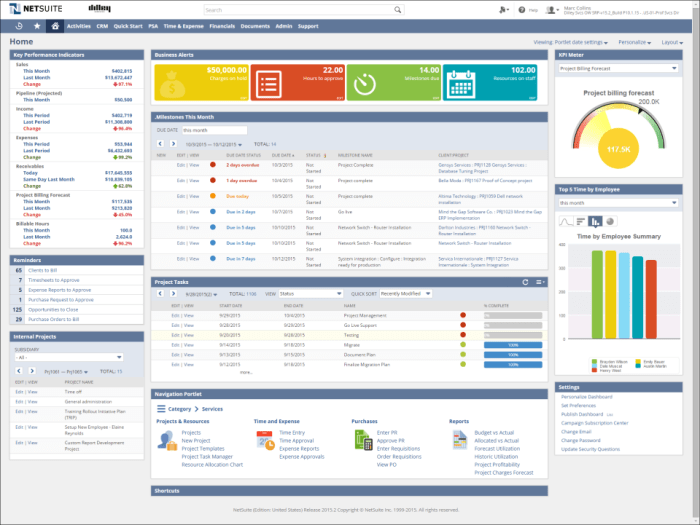
In conclusion, NetSuite emerges as a game-changer in the realm of business management. From customization to analytics, its holistic approach empowers organizations to make informed decisions and achieve success. Embrace the power of NetSuite and elevate your business to new heights.
FAQs
How can NetSuite benefit my business?
NetSuite can streamline operations, improve efficiency, and provide valuable insights through its integrated modules.
What challenges might organizations face during NetSuite implementation?
Common challenges include data migration issues, user adoption hurdles, and customization complexities.
Is NetSuite suitable for small businesses?
While NetSuite is robust, it may be more suitable for mid-sized to large enterprises due to its comprehensive features and pricing.

